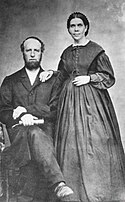롤라 커디
Lola Cuddy롤라 커디 | |
|---|---|
| 태어난 | 1939년(81~82) |
| 국적 | 캐나다인 |
| 학력 | |
| 모교 | 위니펙 대학교 토론토의 대학교 |
| 박사학위 자문위원 | 엔델 툴빙 |
| 학술사업 | |
| 규율 | 심리학 |
| 하위 수양 | 음악심리학 |
| 기관 | 퀸즈 대학교 |
롤라 L. 커디(Lola L. Curddy, 1939년 출생)는 음악 심리학 분야에 기여한 공로를 인정받은 캐나다의 심리학자다. 그녀는 온타리오 주 킹스턴에 있는 퀸즈 대학의 심리학과 에메리타 교수다.
전기
커디는 1939년에 태어나 마니토바주 위니펙의 음악가 집안에서 자랐다.[1] 훈련된 피아니스트였던 그녀는 1959년 유나이티드 칼리지(현 위니펙 대학)에서 심리학 학부 학위를 취득하는 동시에 음악학 학사도 취득했다.[1][2] 그녀는 Endel Tulving의 감독하에 토론토 대학에서 심리학 석사학위(1961년)와 박사학위(1965)를 취득했다.[1][2][3] 1965년 커디와 남편 멜 위베(빅토리아 문학의 학자)는 토론토를 떠나 퀸즈 대학의 직책을 수락했다.[1][4]
1969년 커디는 캐나다 최초의[5] 음악심리연구소이자 세계 최초의 음악심리연구소인 퀸즈대학에 음악인지연구소(Music Cognition Lab)를 설립했다.[6] 그녀의 연구 프로그램은 멜로디 기대,[8] 절대 음조,[9] 음악 훈련의 효과 [7]등 음악 심리학 내에서 광범위한 주제를 연구했다.[10] 최근 일련의 연구들은 알츠하이머병을 앓고 있는 사람들의 음악 처리를 탐구했다.[7][11][12] 이 작품은 치매와 관련된 기억 상실 환자가 음악적 기억을 유지할 수 있다는 사실을 밝혀내 언론의 주목을 받았다.[13][6][14][15]
커디는 2002년부터 2017년까지 잡지 '뮤직 인지도'의 편집장을 지냈고, 잡지 '뮤직애 사이언티애'와 '사이언톨로지'의 자문 편집장을 지냈다.[1][7][3] 그녀는 2001년부터 2002년까지 음악인식학회 회장을 역임했다.[7]
명예 및 상
- 1987: 동료, 캐나다 심리학회[3]
- 2005: 데이비드 호로빈 의학 이론상[14]
- 2011년: 평생 공로상, 음악 인식 및 인식을[7] 위한 사회
- 2011: 펠로우, 심리학[16] 협회
- 2017: 동료, 캐나다 뇌, 행동, 인지 과학[3] 협회
선택한 작품
- Cuddy, Lola L.; Cohen, Annabel J.; Miller, Janet (1979). "Melody recognition: The experimental application of musical rules". Canadian Journal of Psychology. 33 (3): 148–157. doi:10.1037/h0081713. PMID 519545.
- Cuddy, Lola L.; Cohen, Annabel J.; Mewhort, D. J. K. (1981). "Perception of structure in short melodic sequences". Journal of Experimental Psychology: Human Perception and Performance. 7 (4): 869–883. doi:10.1037/0096-1523.7.4.869.
- Cuddy, Lola L.; Badertscher, Betsy (1987). "Recovery of the tonal hierarchy: Some comparisons across age and levels of musical experience". Perception & Psychophysics. 41 (6): 609–620. doi:10.3758/BF03210493. PMID 3615155.
- Cuddy, Lola L.; Lunney, Carole A. (1995). "Expectancies generated by melodic intervals: Perceptual judgments of melodic continuity". Perception & Psychophysics. 57 (4): 451–462. doi:10.3758/BF03213071. PMID 7596743.
- Jakobson, Lorna S.; Cuddy, Lola L.; Kilgour, Andrea R. (2003). "Time Tagging: A Key to Musicians' Superior Memory". Music Perception. 20 (3): 307–313. doi:10.1525/mp.2003.20.3.307.
- "Memory for Melodies and Lyrics in Alzheimer's Disease". Music Perception. 29 (5): 479–491. 2012. doi:10.1525/mp.2012.29.5.479.
- Cuddy, Lola L.; Duffin, Jacalyn (2005). "Music, memory, and Alzheimer's disease: Is music recognition spared in dementia, and how can it be assessed?". Medical Hypotheses. 64 (2): 229–235. doi:10.1016/j.mehy.2004.09.005. PMID 15607545.
- Cuddy, Lola L. (2018). "Long-Term Memory for Music". Springer Handbook of Systematic Musicology. Springer Handbooks. pp. 453–459. doi:10.1007/978-3-662-55004-5_23. ISBN 978-3-662-55002-1.
참조
- ^ a b c d e Cuddy, Lola L. (2009). "Development of music perception and cognition research: An autobiographical account from a Canadian perspective". Psychomusicology: Music, Mind and Brain. 20 (1–2): 43–52. doi:10.1037/h0094225. ISSN 2162-1535.
- ^ a b "Dr. Lola Cuddy Education with Impact - 2 The University of Winnipeg". University of Winnipeg. Retrieved 2019-12-18.
- ^ a b c d "Lola Cuddy CV" (PDF). Queen's University. 2017-06-01. Retrieved 2019-12-16.
- ^ Jansman, Anita (2013-09-20). "Psychology professor a pioneer in music perception and cognition". Queen's Gazette Queen's University. Retrieved 2019-12-18.
- ^ "How music affects the brain". University Affairs. Retrieved 2019-12-18.
- ^ a b Elliott, Trisha (2019-02-15). "For those with dementia, music brings comfort, connection and joy". The UC Observer. Retrieved 2019-12-18.
- ^ a b c d e "SMPC honors MP Editor Lola Cuddy with Lifetime Achievement Award Music Perception". Music Perception. Retrieved 2019-12-18.
- ^ Cuddy, Lola L.; Lunney, Carole A. (1995). "Expectancies generated by melodic intervals: Perceptual judgments of melodic continuity". Perception & Psychophysics. 57 (4): 451–462. doi:10.3758/BF03213071. ISSN 0031-5117. PMID 7596743.
- ^ Cuddy, Lola L. (1968). "Practice Effects in the Absolute Judgment of Pitch". The Journal of the Acoustical Society of America. 43 (5): 1069–1076. Bibcode:1968ASAJ...43.1069C. doi:10.1121/1.1910941. ISSN 0001-4966. PMID 5648097.
- ^ Jakobson, Lorna S.; Cuddy, Lola L.; Kilgour, Andrea R. (2003). "Time Tagging: A Key to Musicians' Superior Memory". Music Perception. 20 (3): 307–313. doi:10.1525/mp.2003.20.3.307. ISSN 0730-7829.
- ^ "Memory for Melodies and Lyrics in Alzheimer's Disease". Music Perception. 29 (5): 479–491. 2012. doi:10.1525/mp.2012.29.5.479.
- ^ Cuddy, Lola L.; Sikka, Ritu; Vanstone, Ashley (2015). "Preservation of musical memory and engagement in healthy aging and Alzheimer's disease: Musical memory in Alzheimer's disease". Annals of the New York Academy of Sciences. 1337 (1): 223–231. doi:10.1111/nyas.12617. PMID 25773638.
- ^ Cuddy, Lola L.; Duffin, Jacalyn (2005). "Music, memory, and Alzheimer's disease: is music recognition spared in dementia, and how can it be assessed?". Medical Hypotheses. 64 (2): 229–235. doi:10.1016/j.mehy.2004.09.005. PMID 15607545.
- ^ a b "The Alzheimer patient who sang 'Oh, what a beautiful morning!'". www.elsevier.com. Retrieved 2019-12-23.
- ^ Glauberzon, Olivia (2009-02-25). "More to music than catchy tunes". Investment Executive. Retrieved 2019-12-18.
- ^ "APS Fellows". Association for Psychological Science. Retrieved 2019-12-21.


